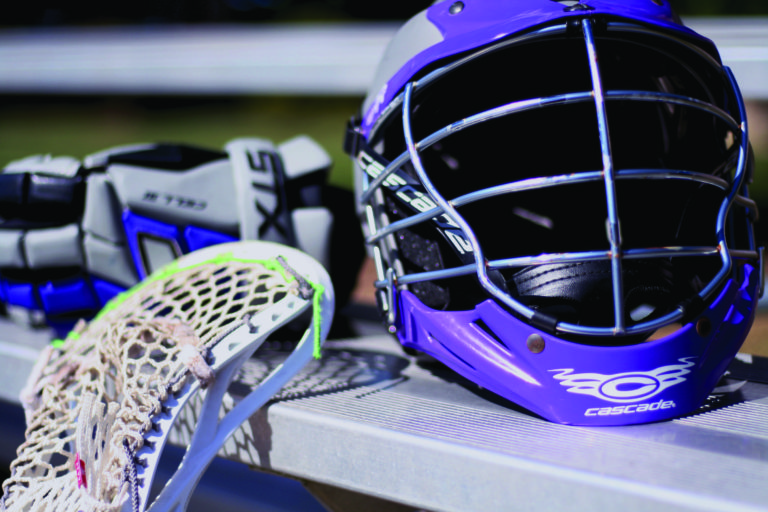By Ty Schadt, Sports Editor
Asbury’s emphasis on community is the foundation to the university’s success. It’s the key that opens the door to academic excellence and spiritual vitality, which is ultimately the university’s selling point. With that being said, it seems imperative that all students feel welcomed, accepted and respected on campus. However, that isn’t always the case, especially when it comes to student athletes.
Being a member of the Collegian whose position is entirely dependent on Asbury’s student athletes, I was alarmed at the overwhelming response of frustration to a story we ran in the Sept. 1 issue. Something that was directed towards a specific Division One student athlete at a specific university was unfortunately presented in a manner that could easily have been taken out of context and regarded as a claim about student athletes in general. When passing the story through to publication, I failed to recognize this. On behalf of the Collegian’s sports section, I want to apologize for any anger the article caused. Without Asbury’s athletes, there would be no sports section in this paper. The last thing we want to do is lose their support or belittle their immense athletic and academic efforts, intentionally or unintentionally.
While it may be typical for a larger college’s athletes to be separated from the standard student, it is a bigger deal at Asbury, since there are only 1,300 students on campus. Given such a small population, no one should feel excluded. Yet many of Asbury’s athletes believe they are judged by students, and sometimes by faculty, on account of grades and spirituality, simply because they play sports. This judgment is unfair and unfounded, though.
Academically, athletes take care of business. According to Athletic Director Mark Perdue, the overall department GPA is 3.12, and 13 out of the 17 teams have at least a 3.0. This leaves no means for the belief that athletes are inferior in the classroom.
Spiritually is harder to judge. However, in many ways, athletes have the chance to do more outreach than typical students. Asbury’s teams are involved in mission trips and volunteer work, and they have the opportunity to represent the school’s spiritual vitality in their attitudes after games.
“After the volleyball team lost in the conference tournament championship last year, we still prayed with the other team after the game. It was a beautiful moment I wouldn’t have gotten in a classroom,” said volleyball captain Katie Billman.
Senior Isaac Moore, a member of the men’s basketball team, feels that an athlete’s personality type is something else that is mistakenly judged. “Many athletes are quite loud and obnoxious, which causes some people to assume that translates to immaturity, even spiritually,” he said. Moore also thinks that students may become intimidated by the comradery teams have, which is reflected by how they act together in social settings, such as the cafeteria. I don’t believe it’s ever fair to judge another’s spirituality, and teammate camaraderie is something to embrace, not dismiss.
I spoke to my sports management class, comprised mostly of athletes, about this issue, and the clear majority agreed that they face prejudice on campus. One student athlete agreed with Moore and said that sometimes he feels like other students perceive him to be less spiritually sound simply because he plays a sport. Another said he feels that professors have treated him differently for two reasons: bad impressions implanted by athletes before him and classes missed due to games. Both of these things are out of an athlete’s control; therefore, it makes no sense to judge them because of it.
This bad attitude needs to be addressed. Stereotypes within the student population are the last thing a small school needs, and it’s a shame students should feel this way when the opportunity for change is so available.
So how do we go about bridging the gap?
First, dates for games and other sporting events need to be more publicized. Student Body President Tim Shell agrees. “We’re looking to put game times on the Asbury Activities app so more people will be in the know,” he said.
By simply raising awareness of when games occur, I believe more students will turn out and support our teams. I know that if I were an athlete, I would appreciate seeing my fellow classmates pack the stands to watch my team play. This would grant students a baseline for conversation when talking to athletes as well. It’s a little thing that could go a long way in enhancing community life.
Secondly, athletics could be made into more of a priority on campus. “I think if there were less event overlap, more students would interact with athletes and vice versa,” said Moore. This, coupled with more publicity, is something that could really help athletes and students unite.
However, students that don’t play sports aren’t the only ones who need to raise their awareness regarding this issue. Billman claims that the effort to break this stereotype must be two-sided. “Athletes need to reach out, too. Everyone needs to have an open heart and an open mind,” she said.
Things become dicey when trying to come up with a solution to fix a problem that affects so many people. It shouldn’t matter if a non-athlete doesn’t believe such stereotypes to be a problem on this campus, because many athletes do, and their feelings should be the only basis needed for it to be recognized as an issue. The most important thing is becoming aware of who is around you and recognizing their value as a human being and as an Asbury student. The saying isn’t “academic excellence and spiritual vitality for everyone except student athletes.” It’s time to set our preconceived notions aside and unite in the fact that we’re all college students trying to make it somewhere, some of us just happen to play a sport. Things are a lot easier that way.




